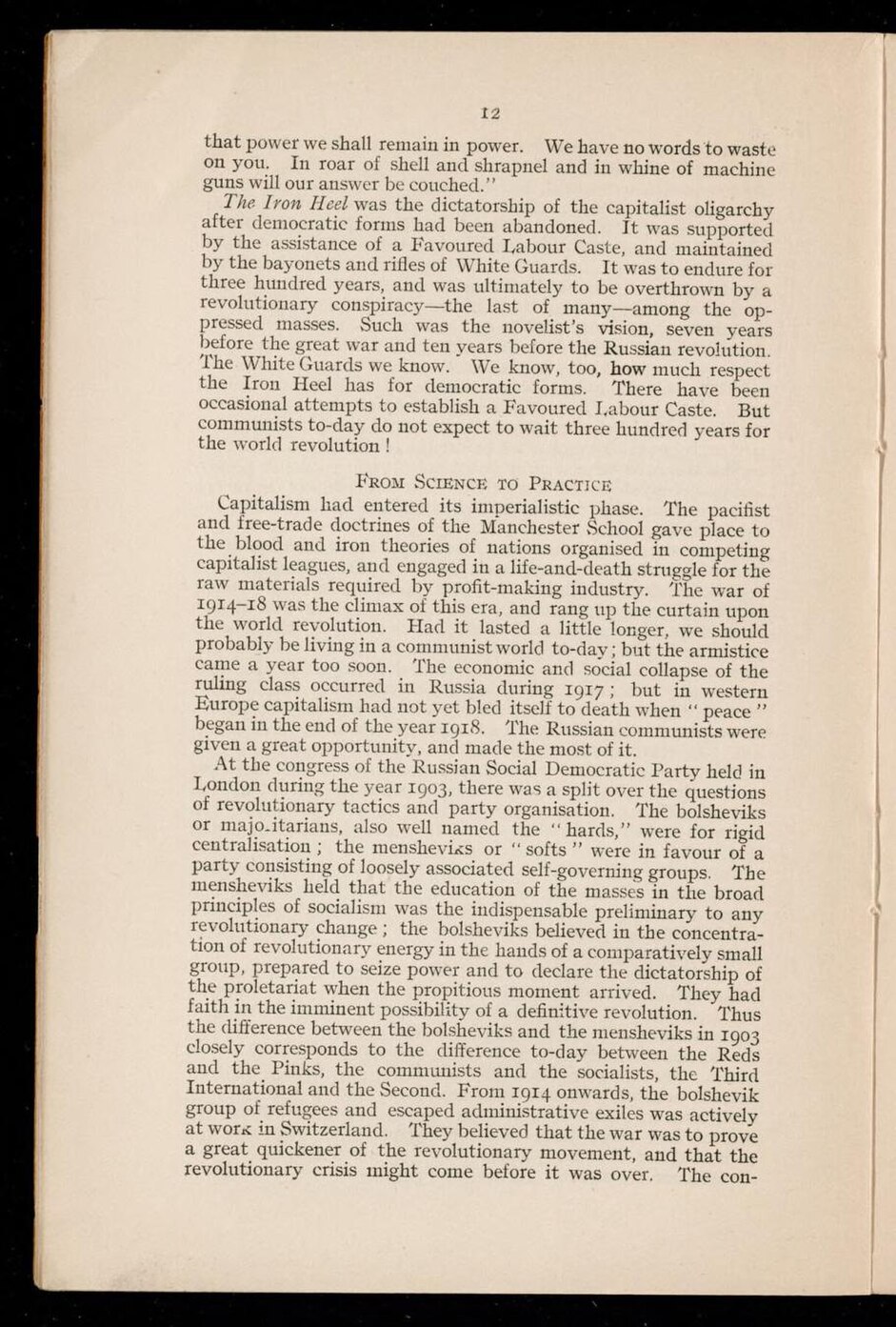12
that power we shall remain in power. We have no words to waste on you. In roar of shell and shrapnel and in whine of machine guns will our answer be couched."
The Iron Heel was the dictatorship of the capitalist oligarchy after democratic forms had been abandoned. It was supported by the assistance of a Favoured Labour Caste, and maintained by the bayonets and rifles of White Guards. It was to endure for three hundred years, and was ultimately to be overthrown by a revolutionary conspiracy—the last of many—among the oppressed masses. Such was the novelist's vision, seven years before the great war and ten years before the Russian revolution. The White Guards we know. We know, too, how much respect the Iron Heel has for democratic forms. There have been occasional attempts to establish a Favoured Labour Caste. But communists to-day do not expect to wait three hundred years for the world revolution!
From Science to Practice
Capitalism had entered its imperialistic phase. The pacifist and free-trade doctrines of the Manchester School gave place to the blood and iron theories of nations organised in competing capitalist leagues, and engaged in a life-and-death struggle for the raw materials required by profit-making industry. The war of 1914–18 was the climax of this era, and rang up the curtain upon the world revolution. Had it lasted a little longer, we should probably be living in a communist world to-day; but the armistice came a year too soon. The economic and social collapse of the ruling class occurred in Russia during 1917; but in western Europe capitalism had not yet bled itself to death when "peace" began in the end of the year 1918.
The Russian communists were given a great opportunity, and made the most of it. At the congress of the Russian Social Democratic Party held in London during the year 1903, there was a split over the questions of revolutionary tactics and party organisation. The bolsheviks or majoritarians, also well named the "hards," were for rigid centralisation; the mensheviks or "softs" were in favour of a party consisting of loosely associated self-governing groups. The mensheviks held that the education of the masses in the broad principles of socialism was the indispensable preliminary to any revolutionary change; the bolsheviks believed in the concentration of revolutionary energy in the hands of a comparatively small group, prepared to seize power and to declare the dictatorship of the proletariat when the propitious moment arrived. They had faith in the imminent possibility of a definitive revolution. Thus the difference between the bolsheviks and the mensheviks in 1903 closely corresponds to the difference to-day between the Reds and the Pinks, the communists and the socialists, the Third International and the Second. From 1914 onwards, the bolshevik group of refugees and escaped administrative exiles was actively at work in Switzerland. They believed that the war was to prove a great quickener of the revolutionary movement, and that the revolutionary crisis might come before it was over. The con-
